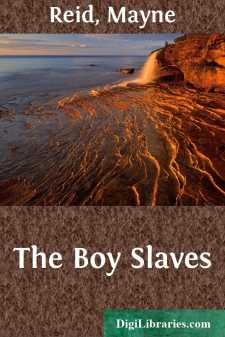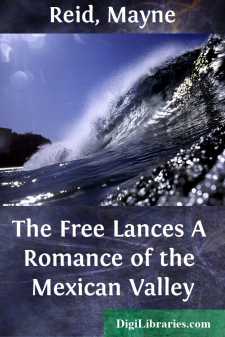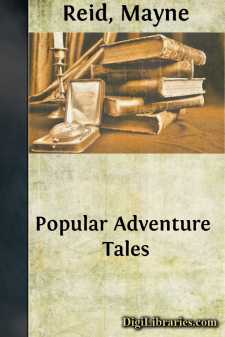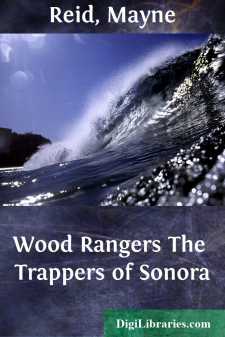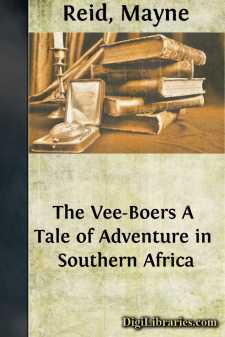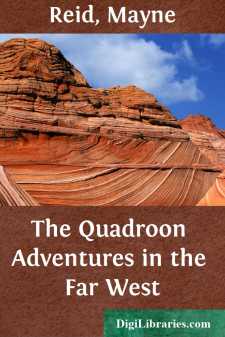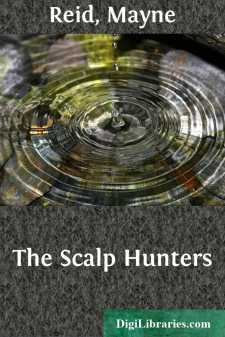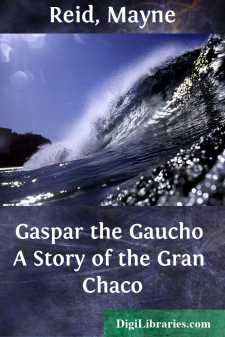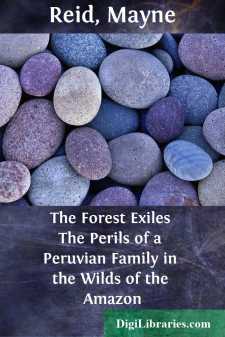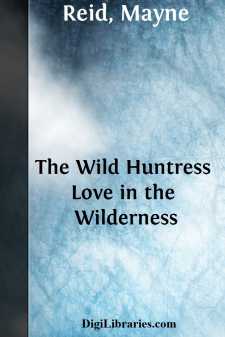Categories
- Antiques & Collectibles 13
- Architecture 36
- Art 48
- Bibles 22
- Biography & Autobiography 815
- Body, Mind & Spirit 144
- Business & Economics 28
- Children's Books 18
- Children's Fiction 14
- Computers 4
- Cooking 94
- Crafts & Hobbies 4
- Drama 346
- Education 58
- Family & Relationships 59
- Fiction 11829
- Games 19
- Gardening 17
- Health & Fitness 34
- History 1378
- House & Home 1
- Humor 147
- Juvenile Fiction 1873
- Juvenile Nonfiction 202
- Language Arts & Disciplines 89
- Law 16
- Literary Collections 686
- Literary Criticism 179
- Mathematics 13
- Medical 41
- Music 40
- Nature 179
- Non-Classifiable 1768
- Performing Arts 7
- Periodicals 1453
- Philosophy 65
- Photography 2
- Poetry 896
- Political Science 203
- Psychology 44
- Reference 154
- Religion 515
- Science 126
- Self-Help 85
- Social Science 82
- Sports & Recreation 34
- Study Aids 3
- Technology & Engineering 59
- Transportation 23
- Travel 463
- True Crime 29
Mayne Reid
Mayne Reid (1818-1883) was an Irish-American novelist renowned for his adventure novels that captivated young readers with their thrilling narratives and vivid depictions of the American frontier, Mexico, and other exotic locales. He served as a volunteer in the Mexican-American War, which profoundly influenced his writing, providing authentic details and a sense of adventure. Some of his most famous works include "The Headless Horseman" and "The Scalp Hunters," both of which reflect his fascination with the untamed wilderness and the conflicts between settlers and Native Americans.
Author's Books:
Sort by:
by:
Mayne Reid
AUTHOR'S NOTE. Captain Mayne Reid is pleased to have had the help of an American Author in preparing for publication this story of "The Boy Slaves," and takes the present opportunity of acknowledging that help, which has kindly extended beyond matters of merely external form, to points of narrative and composition, which are here embodied with the result of his own labor. The Rancho,...
more...
by:
Mayne Reid
Chapter One. Volunteers for Texas. “I’ll go!” This laconism came from the lips of a young man who was walking along the Levee of New Orleans. Just before giving utterance to it he had made a sudden stop, facing a dead wall, enlivened, however, by a large poster, on which were printed, in conspicuous letters, the words— “Volunteers for Texas!” Underneath, in smaller type, was a proclamation,...
more...
by:
Mayne Reid
BIOGRAPHICAL SKETCH Captain Mayne Reid was born at Ballyroney, County Down, on the 4th April, 1818, and was the son of the Rev. Thomas Mayne Reid. Mayne Reid was educated with a view to the Church, but finding his inclinations opposed to this calling, he emigrated to America and arrived in New Orleans on January, 1840. After a varied career as plantation over-seer, school-master, and actor, with a...
more...
by:
Mayne Reid
Chapter One. Pepé, The Sleeper. No landscape on the Biscayan coast, presents a more imposing and picturesque aspect than the little village of Elanchovi. Lying within an amphitheatre of cliffs, whose crests rise above the roofs of the houses, the port is protected from the surge of the sea by a handsome little jetty of chiselled stone; while the single street of which the village is composed,...
more...
by:
Mayne Reid
On the Karoo. A vast plain, seemingly bounded but by the horizon; treeless, save where a solitary cameel-doorn (Note 1) spreads its feathered leaves, or a clump of arborescent aloes, mingled with rigid-stemmed euphorbias, breaks the continuity of its outline. These types of desert vegetation but proclaim its sterility, which is further evinced by tufts of whiteish withered grass, growing thinly between...
more...
by:
Mayne Reid
Chapter One. The Father of Waters. Father of Waters! I worship thy mighty stream! As the Hindoo by the shores of his sacred river, I kneel upon thy banks, and pour forth my soul in wild adoration! Far different are the springs of our devotion. To him, the waters of his yellow Ganges are the symbols of a superstitious awe, commingled with dark fears for the mystic future; to me, thy golden wares are the...
more...
by:
Mayne Reid
The Wild West. Unroll the world’s map, and look upon the great northern continent of America. Away to the wild west, away toward the setting sun, away beyond many a far meridian, let your eyes wander. Rest them where golden rivers rise among peaks that carry the eternal snow. Rest them there. You are looking upon a land whose features are un-furrowed by human hands, still bearing the marks of the...
more...
by:
Mayne Reid
The Gran Chaco. Spread before you a map of South America. Fix your eye on the point of confluence between two of its great rivers—the Salado, which runs south-easterly from the Andes mountains, and the Parana coming from the north; carry your glance up the former to the town of Salta, in the ancient province of Tucuman; do likewise with the latter to the point where it espouses the Paraguay; then up...
more...
by:
Mayne Reid
The biggest Wood in the World. Boy reader, I am told that you are not tired of my company. Is this true? “Quite true, dear Captain,—quite true!” That is your reply. You speak sincerely? I believe you do. In return, believe me, when I tell you I am not tired of yours; and the best proof I can give is, that I have come once more to seek you. I have come to solicit the pleasure of your...
more...
by:
Mayne Reid
Chapter One. The Squatter’s Clearing. The white-headed eagle, soaring above the spray of a Tennessean forest, looks down upon the clearing of the squatter. To the eye of the bird it is alone visible; and though but a spot in the midst of that immense green sea, it is conspicuous by the colour of the trees that stand over it. They stand, but grow not: the girdling ring around their stems has deprived...
more...


